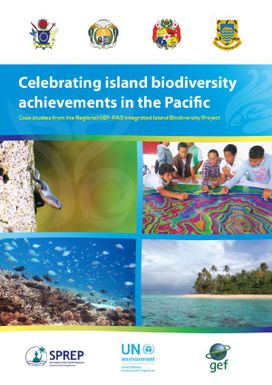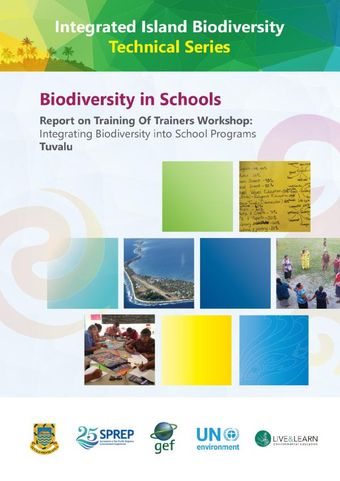Celebrating island biodiversity achievements in the Pacific: case studies from the GEFPAS Integrated Island Biodiversity Project
- Description:
- Our Pacific island region is rich and diverse in its culture, languages and traditions. Despite this diversity, Pacific peoples have something in common we belong to the largest ocean on planet Earth, which covers more than 169 million square kilometres, we maintain a strong reliance on the conservation and sustainable use of biodiversity for sustainable development, for daily livelihoods and for preserving our cultural practices. But perhaps the most important common feature we share is that we are a region of ocean state islands. In 2006, the Island Biodiversity Programme of Work (IBPOW) was adopted at the eighth Conference of Parties (COP) of the Convention on Biological Diversity to address the uniqueness and fragility of island biodiversity and it provides guidance on priorities for biodiversity management in small island developing states, including the application of ecosystem approaches to management.
- Display date:
- 2017
- Collections:
- Secretariat of the Pacific Regional Environment Programme (SPREP)
- Publisher:
- Secretariat of the Pacific Regional Environment Programme (SPREP)
- Content partner:
- Secretariat of the Pacific Regional Environment Programme (SPREP)
- Availability:
- Not specified
-
Copyright status: All rights reservedFind out more about what you are able to do with this itemThis item is all rights reserved, with means you'll have to get permission from Secretariat of the Pacific Regional Environment Programme (SPREP) before using it. For more information, please see our use and reuse page.What can I do with this item?Non-infringing useNZ copyright law does not prevent every use of a copyright work, and this item may be hosted by an international institute or organisation. You should consider what you can and cannot do with a copyright work.No sharingYou may not copy and/or share this item with others without further permission. This includes posting it on your blog, using it in a presentation, or any other public use.No modifyingYou are not allowed to adapt or remix this item into any other works.No commercial useYou may not use this item commercially.
Related items
Welcome and warm Pasifik greetings
The information on this site has been gathered from our content partners.
The names, terms, and labels that we present on the site may contain images or voices of deceased persons and may also reflect the bias, norms, and perspective of the period of time in which they were created. We accept that these may not be appropriate today.
If you have any concerns or questions about an item, please contact us.

